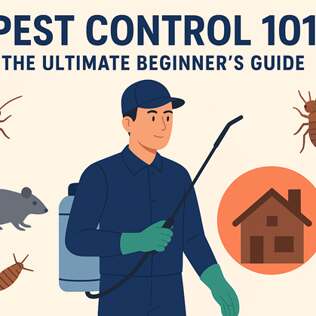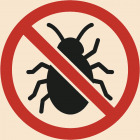Termites: Inspection, Treatment Methods & Typical Costs
Termites are quiet, insidious wood eaters that can turn a cozy home into a structural problem. If you suspect activity, act quickly: early detection saves money and grief. Below is a practical guide to termite inspection, the main treatment options, and the typical costs you can expect.
What happens during a termite inspection
A professional inspector will look for mud tubes, damaged timber, hollow sounding wood, and frass (powdery droppings). They check crawl spaces, basements, attics, and exterior foundations. Many companies also use moisture meters and borescopes for a more forensic look. Inspections often include a written report and photos you can use when comparing quotes.
Treatment methods explained
- Localized spot treatments: Used when infestation is contained. Technicians drill and inject termiticides into affected timbers or soil; baiting stations may be added nearby.
- Liquid barrier (soil treatment): Liquid insecticide is applied around the foundation to form a protective perimeter. This is a common long term solution for subterranean termites.
- Baiting systems: Stations with cellulose bait are placed around the property. Termites feed on the bait and carry it back to the colony, gradually eliminating it. This is less intrusive and good for continued monitoring.
- Whole house fumigation: Reserved for severe drywood termite infestations. The house is tented and fumigated, which is thorough but disruptive.
Typical costs (USD, ballpark ranges)
- Termite inspection: $70 to $200 (some companies offer free inspection with service).
- Localized spot treatment: $300 to $1,200.
- Liquid barrier or trench treatment: $800 to $3,000, depending on property size and soil conditions.
- Baiting systems: $800 to $2,500 initial installation, with ongoing monitoring fees.
- Whole house fumigation: $2,000 to $4,500, sometimes higher for large homes.
Maintenance contracts and warranties vary; many pest control services offer annual inspections or multi year guarantees for an extra fee.
Choosing a company
Look for licensed pest control companies, read reviews, and ask about guarantees, safety protocols, and whether the treatment targets the termite species found. Don’t hesitate to request multiple quotes: solutions and prices can differ widely.
Quick tip: If you see mud tubes on foundation walls or small piles of wood colored pellets, call an exterminator near you immediately rather than trying only DIY tricks.
Termite control is often a mix of immediate treatment and long term prevention. With the right inspection and a considered treatment plan, you can protect your home and avoid surprise repair bills. Act decisively, compare pest control services, and keep records of inspections and treatments for future resale value. #termites #pestcontrol

